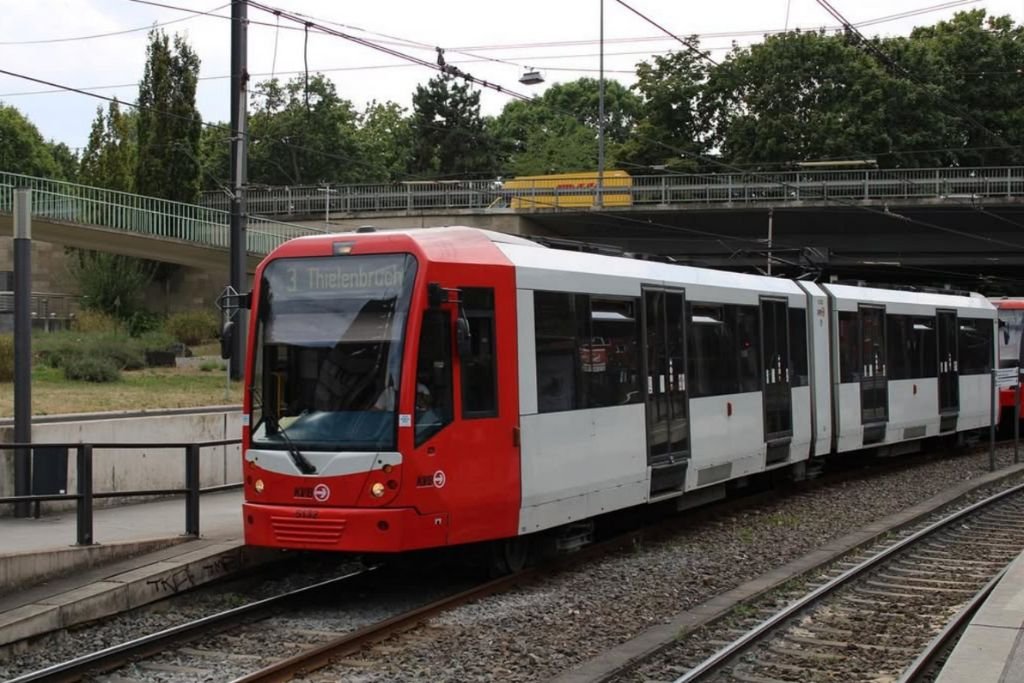Germany Train Travel: Ultimate Guide

Germany boasts one of the most efficient and extensive rail networks in the world, making train travel the ideal way to explore the country. Whether you’re commuting between cities or soaking in scenic countryside views, Germany’s rail system offers convenience, speed, and comfort.
This ultimate guide covers everything you need to know about train travel in Germany, including how to book Deutsche Bahn tickets, the best train passes Germany has to offer, and insider tips for a seamless journey.
Why Travel by Train in Germany?
Germany’s rail network, operated primarily by Deutsche Bahn (DB), is renowned for its:
- Punctuality (though delays can happen, most trains run on time)
- Extensive coverage (connecting cities, towns, and even neighboring countries)
- High-speed trains (like ICE, IC, and EC) reaching speeds up to 300 km/h
- Eco-friendly travel (trains produce far fewer emissions than cars or planes)
Whether you’re a tourist or a local, train travel is often the fastest and most relaxing way to get around.
Types of Trains in Germany
Understanding Germany’s train system starts with knowing the different types of trains:
- ICE (InterCity Express) – The fastest and most comfortable, connecting major cities like Berlin, Munich, Frankfurt, and Hamburg.
- IC/EC (InterCity/EuroCity) – Slightly slower than ICE but still efficient, with international routes to Austria, Switzerland, and beyond.
- IRE (InterRegio Express) & RE (Regional Express) – Regional trains with more stops but cheaper fares.
- RB (Regionalbahn) – Local trains stopping at smaller stations.
- S-Bahn – Urban commuter trains in cities like Berlin, Munich, and Frankfurt.
For long-distance travel, ICE and IC trains are best, while RE and RB trains are ideal for regional exploration.
How to Buy Deutsche Bahn Tickets
Booking Deutsche Bahn tickets is straightforward, with several options:
1. Online via Deutsche Bahn Website or App
- The DB Navigator app (available on iOS/Android) is the easiest way to book tickets.
- Tickets can be purchased in advance for discounts.
- E-tickets can be scanned directly from your phone.
2. At Train Station Counters or Machines
- Major stations have English-language ticket machines.
- Staffed counters are available but may have long lines.
3. Through Third-Party Websites
- Platforms like Omio, Trainline, or Raileurope sell DB tickets (sometimes with booking fees).
Tips for Saving on Deutsche Bahn Tickets
- Book early – “Sparpreis” (saver fares) can be as low as €17.90 if booked weeks in advance.
- Flexible tickets – “Flexpreis” allows changes but costs more.
- Group discounts – “Gruppe & Spar” offers savings for groups of 2-5 people.
- Day tickets – “Quer-durchs-Land-Ticket” (€44 for one day, up to 5 people) is great for regional travel.
Best Train Passes Germany Offers
If you plan to travel extensively, rail passes can save you money. Here are the best train passes Germany provides:
1. Deutsche Bahn’s BahnCard
- BahnCard 25 (€55/year) – 25% off all tickets.
- BahnCard 50 (€249/year) – 50% off, ideal for frequent travelers.
- BahnCard 100 (€4,339/year) – Unlimited travel on all DB trains.
2. Interrail/Eurail Passes (for non-European residents)
- Global Pass – Covers 33 countries, including Germany.
- One Country Pass – Focuses solely on Germany.
- Best for tourists planning multi-country trips.
3. Länder-Tickets (Regional Day Passes)
- Bayern-Ticket (€26 for one person, €40 for up to 5) – Unlimited travel in Bavaria.
- Schönes-Wochenende-Ticket (€44 for unlimited weekend travel on regional trains).
- Quer-durchs-Land-Ticket (€44 for nationwide regional train travel).
4. City Travel Passes
- Many cities offer combo transit passes (e.g., Berlin WelcomeCard includes trains and discounts).
Navigating German Train Stations
Germany’s major train stations (Hauptbahnhof) are well-organized but can be overwhelming. Key tips:
- Check departure boards – Platforms (Gleis) are listed shortly before departure.
- Validate tickets – Required for regional passes (not for pre-booked e-tickets).
- Luggage storage – Lockers (€3-6) are available at major stations.
- Food & amenities – Most stations have bakeries, supermarkets, and rest areas.
Onboard Etiquette & Tips
To ensure a smooth ride:
- Reserve seats (especially on ICE trains) for €4.50 extra.
- Quiet zones exist in some carriages—avoid loud calls.
- Wi-Fi is free on most ICE trains (but can be spotty).
- Bring snacks – Long-distance trains have dining cars, but prices are high.
Scenic Train Routes in Germany
For breathtaking views, consider these routes:
- Rhine Valley (Koblenz to Mainz) – Castles and vineyards.
- Black Forest Railway (Offenburg to Konstanz) – Dense forests and charming villages.
- Harz Narrow-Gauge Railway – Steam trains through mountain landscapes.
Final Tips for Train Travel in Germany
- Always check for delays via the DB Navigator app.
- Keep your ticket handy – Inspectors fine those without valid tickets (€60+).
- Use bike tickets if bringing a bicycle (required on most trains).
- Consider 1st class for more space and quieter cabins.
Germany’s rail system is a traveler’s dream, offering speed, comfort, and stunning scenery. By booking Deutsche Bahn tickets in advance and choosing the best train passes Germany has available, you can explore the country affordably and efficiently.
Whether you’re hopping between Berlin and Munich or enjoying a slow regional ride through the countryside, train travel in Germany is an experience in itself. All aboard!
- Book early for the cheapest Deutsche Bahn tickets.
- Compare the best train passes Germany offers to maximize savings.
- Download the DB Navigator app for real-time updates.






